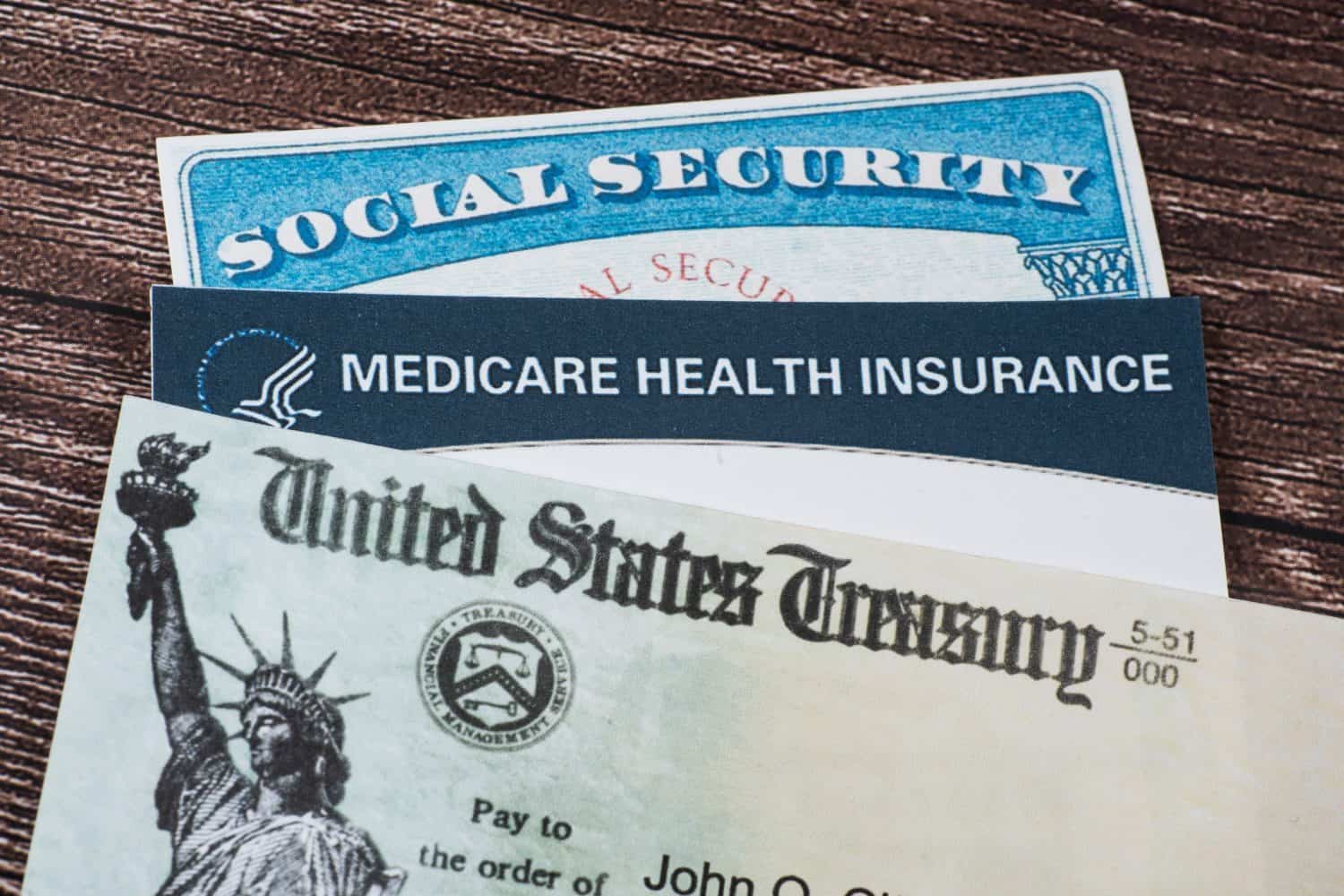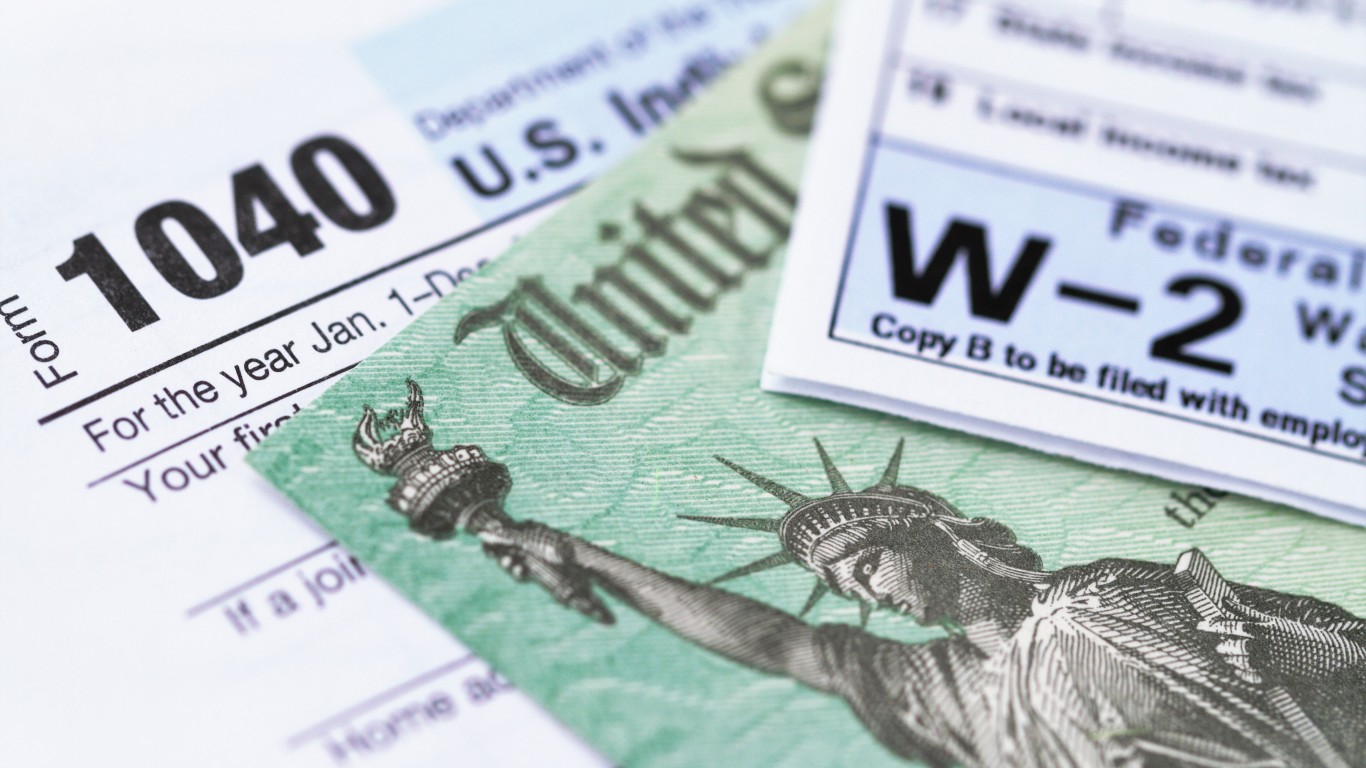Personal Finance
The Typical American Can’t Answer These Simple Medicare Questions

Published:

When you think about Medicare, there is good reason to think it’s simply a medical program for anyone over 65. Where things get interesting is that beyond this basic fact, most Americans, even those who qualify, can’t answer some simple and basic questions about the program.
Medicare can be a fantastic choice for anyone over 65. The Medicare program is funded through taxpayer and government investments. There is a difference between all of the Medicare “Parts,” that impact how much you pay monthly and quarterly. Smart Social Security planning can help you retire early. Talk to a professional today and learn more (sponsor)
Key Points
Understanding how Medicare works is essential, especially if you want to participate and take advantage of the program’s benefits in the future. Of course, Medicare’s actual future is always a source of political discussion, but beyond that, knowing the basics should be an absolute must for every American.

What is the Medicare program?

The best way to describe Medicare is as a federal health insurance program for Americans 65 and over. However, there are some separate individual requirements for people under 65 who have certain disabilities, like End-Stage Renal Disease or ALS. You or a spouse must have worked and paid Medicare taxes for at least 10 years to receive premium-free Part A Medicare.

What is the difference between Medicare and Medicaid?

Simply put, Medicare is affordable health insurance coverage for Americans 65 and over. On the other hand, Medicaid is a federal health insurance program that provides affordable health insurance for low-income Americans. It is possible to be eligible for both programs, though most people take advantage of only one at a time.

Who provides the funding for Medicare?

Funding for the Medicare program is provided through a combination of payroll taxes, premiums, and other revenue sources. According to the US Treasury, Medicare funding occurs through two different trust accounts, including the Hospital Insurance Trust Fund, which is handled through payroll taxes. Separately, the Supplementary Medical Insurance Trust Fund is given money through funds authorized by Congress and interest earned on trust fund investments.

What is Medicare Part A?

There are various parts to the Medicare program, which is a little confusing. To clarify, consider Part A as the hospital insurance, which will cover inpatient care or the care you may receive if you are admitted to a hospital for at least one night. Part A is free to any American who has worked and paid Medicare taxes for at least 10 years and their spouses. You can also receive some or all coverage for a skilled nursing facility and hospice care.

What is Medicare Part B?

While Medicare Part A is pretty straightforward, Part B covers outpatient care or procedures that do not require an overnight hospital stay. It also covers any necessary preventative healthcare. Part B also covers doctor visits and services, physical and speech therapy, blood transfusions, medical equipment and supplies, and ambulance services.

What is known as Part C or Medicare Advantage?

Suppose you want to enroll in Medicare Part C. In that case, you should know that it provides comprehensive coverage, including the benefits of Part A, like hospital coverage, and Part B and general medical insurance. Part C can also include wellness programs, vision, hearing, and dental work, but it does come with some restrictions, like requiring patients to stay in-network and even higher costs for any aspects of Part B, which Medicare does not cover 100%.

Is it mandatory to file for Medicare as soon as you turn 65?

No part of Medicare is mandatory, and you can choose to enroll in Medicare after the Initial Enrollment Period when you turn 65. This period usually runs for 90 days or 3 months before your 65th birthday, including your birthday month, and another 3 months after. Unless you qualify for a Special Enrollment Period, such as employer coverage ending, there may be a financial penalty for missing the IEP.

What does Medicare Part A cost?

As long as you have a 10-year history of paying Medicare taxes, most coverage related to Part A is considered free. You are responsible for a deductible benefit for each period, which is $1,632 in 2024, and coinsurance if you have an extended hospital stay. Individuals who do not qualify for Part A due to not having 10 years of tax history can purchase coverage for $505 or $278 monthly, depending on how much they have paid in Medicare taxes.

How much does Medicare Part B cost?

It’s important to know that costs will vary for Part B every year, but in 2024, the current cost is $174.70 monthly. However, higher-earning individuals, such as those with an annual income over $103,000 or $206,000 for a married couple, may pay as much as $244.60 individually or $594 monthly as a married couple. There is also an annual deductible for Part B of $240, and some services require you to pay a percentage of the charges or a copayment amount approved by Medicare.

How do you make payments to the Medicare program?

If you already receive Social Security benefits, any payment related to the monthly Part B premium will be automatically deducted from your Social Security Check. If you are not yet receiving any benefits from Social Security, such as you have deferred payments until you are 70, Social Security will send you a quarterly Medicare bill.

What is the Medicare Supplement or Medigap program?

If you sign up for Medigap coverage on top of the original Medicare program (Parts A and B), the Medigap program will help cover any additional costs. This includes but is not limited to deductibles, copays, and any coinsurance you receive for coverage. There are a total of 10 Medicare Supplement plans. Each one is required to provide the same level of coverage, regardless of the supporting insurance carrier. Pricing varies by state, but the national average for the plan is $115 per month.

What is the difference between Medigap Plans and Medicare Advantage?

Any thoughts that these two plans are the same should be quickly forgotten. Medigap plans do not have a network, while Advantage plans have a network that can be either an HMO or PPO. Medigap plans also have a higher premium and out-of-pocket cost over Advantage Plans. Medigap plans can never be canceled, while an Advantage plan requires annual renewal.

What is Medicare Part D?

Medicare Part D is a prescription drug coverage program for those enrolled in Medicare Part A or B. As long as one of these plans has coverage for Part D, you can sign up, but the program is voluntary. You don’t have to buy Part D as there is an additional cost when enrolled and a late penalty if you enroll after your Initial Enrollment Period. You should select a Part D program that covers your existing medications and works at your current or nearby pharmacy.

What happens cost-wise if you delay Medicare enrollment?

If you delay enrollment for Medicare Part B, it triggers a penalty equal to a 10% premium increase for every 12 months you delay enrolling. In the case of Part D, there is a 1% penalty, which is taken from the national base premium cost and added to your costs for every month you are not covered for Part D but have been eligible.

Does Medicare initially cover any dental, vision, or hearing care needs?

The combination of Medicare Part A and Part B does not cover medical needs. Instead, you have to select an Advantage or supplemental plan that would provide coverage for these services. Otherwise, you would pay out of pocket for eye exams, hearing aids, eyeglasses, etc.

What happens if I am still employed after 65? Can I use both my employer and Medicare plan?

Anyone still employed after 65 can use your group coverage plan and Medicare. However, there is a caveat in that Medicare coordinates with employer insurance based on the employer’s size. Medicare becomes the primary insurance if your employer has fewer than 20 employees. Any company with over 20 employees will see the group plan used first.

Will Medicare cover any long-term care, such as an in-home nurse?

As far as long-term care, Medicare does not provide long-term coverage needs. Instead, Medicare will provide short-term skilled nursing, such as coverage you may need post-surgery for up to 100 days after a hospital stay. However, any long-term care would require Medicaid or private insurance.

Are there any preventative services included with Medicare?

In 2024, the program will include several preventative services, including annual wellness visits, cancer screenings, diabetes screenings, and vaccinations for flu and COVID-19. There is no expectation that this coverage will change from year to year.

What happens if you want to change your Medicare plan?

You can change your Medicare plan during the annual enrollment, typically from October 15 to December 7. You can switch to a different Advantage plan or a new Part D plan during this time. The Medicare Advantage Open Enrollment period runs from January 1 to March 31, allowing you to change your Advantage plan or drop it entirely and use Part A and B.

Does Medicare have any income limits?

The general answer is that Medicare has no income limits, and you qualify for the program if you meet the same requirements as everyone else, related to 10 years of Medicare tax payments. However, those individuals or married couples with a higher income can pay more for both Part B and Part D premiums. The income level is assessed from the last two years of tax returns.
Are you ahead, or behind on retirement? For families with more than $500,000 saved for retirement, finding a financial advisor who puts your interest first can be the difference, and today it’s easier than ever. SmartAsset’s free tool matches you with up to three fiduciary financial advisors who serve your area in minutes. Each advisor has been carefully vetted and must act in your best interests. Start your search now.
If you’ve saved and built a substantial nest egg for you and your family, don’t delay; get started right here and help your retirement dreams become a retirement reality.
Thank you for reading! Have some feedback for us?
Contact the 24/7 Wall St. editorial team.